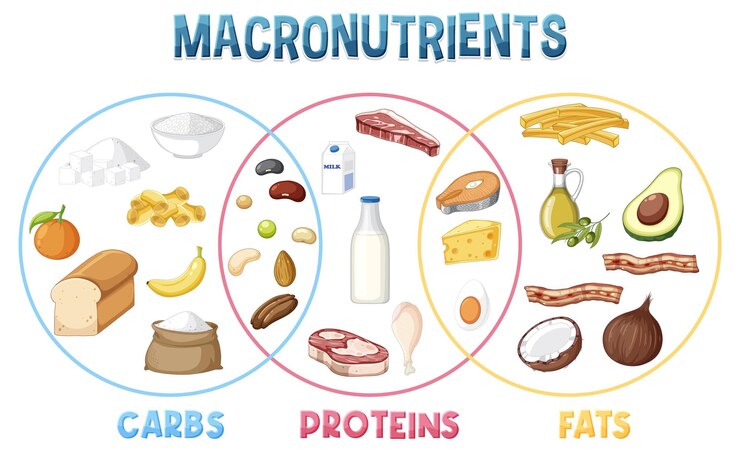Have you ever looked at a food label and felt overwhelmed by terms like carbohydrates, proteins, and fats? Don’t worry; you’re not alone. Understanding macronutrients is essential for anyone aiming to improve their health, fitness, or overall well-being. In this article, we’ll unpack what macronutrients are, delve into their roles, and explore why they are crucial for a diet. You’ll gain insights to help you make informed dietary choices that align with your health goals.
What Are Macronutrients?
Macronutrients are the nutrients our bodies need in large quantities to function optimally. The primary sources of macronutrients are carbohydrates, proteins, and fats. Each contributes to the maintenance of health, energy, and support of bodily functions in a unique way. Let’s break them down to gain a better understanding.

1. Carbohydrates: The Body’s Main Energy Source
Carbohydrates are often misunderstood and misrepresented in today’s diet culture. Your body prefers them as its energy source during high-intensity activities.
Different Types of Carbohydrates
- Simple Carbohydrates: These sugars are quickly absorbed by the body for fast energy. A common source is fruits, honey, and processed sugars.
- Complex Carbohydrates: Comprising longer chains of sugar molecules, these take longer to digest and provide sustained energy. Just a handful of examples include whole grains, legumes, and vegetables.
Tip: Aim to consume more complex carbohydrates for balanced energy levels throughout the day.
2. Proteins: The Building Blocks of Life
Proteins are vital for the growth, repair, and maintenance of body tissues. They are made up of amino acids, some of which are essential (meaning our body cannot produce them).
Sources of Protein
- Meat, fish, eggs, and dairy products are all sources of animal nutrition.
- Plant Sources: Whole grains, beans, lentils, nuts, seeds, and legumes are all part of a healthy diet.
3. Fats: Essential Fatty Acids for Vital Functions
Fats often have a bad reputation, but they are vital for several bodily functions, including hormone production and nutrient absorption.
Types of Fats
- Saturated Fats: It is important to consume them in moderation since they are found in animal products and some tropical oils.
- Unsaturated Fats: Healthier options are found in olive oil, avocados, and fatty fish. These can support heart health.
- Trans Fats: Found in many processed foods; should be avoided as they can increase the risk of heart disease.
Insight: Not all fats are created equal. Ensure that you include more unsaturated fats in your diet.
Why Do Macronutrients Matter?

Understanding and balancing your intake of macronutrients can have a profound impact on your overall health. Here are some key reasons:
1. Energy Levels and Physical Performance
Carbohydrates are your primary source of energy. Whether you’re working out, running errands, or staying alert during the day, the right balance of carbs can help keep your energy levels steady.
2. Muscle Function and Repair
For those who engage in regular exercise, protein is particularly crucial. Adequate protein intake supports muscle recovery and builds muscle mass, making it essential for athletes and fitness enthusiasts.
3. Hormonal Balance and Nutrient Absorption
Fats are crucial for absorbing fat-soluble vitamins (A, D, E, K) and play a vital role in hormone production. Balancing fats in your diet contributes to optimal metabolic function and hormonal health.
How to Create a Balanced Macronutrient Profile

Creating a balanced diet doesn’t have to be daunting. Here’s a simple guide:
Step 1: Calculate Your Macronutrient Needs
- Determine Your Caloric Needs: Use an online calculator based on age, gender, weight, activity level, and goals.
- Set Your Macronutrient Ratios: A common starting point could be 50% carbohydrates, 25% protein, and 25% fats.
Step 2: Plan Your Meals
- Incorporate Whole Foods: Focus on minimally processed foods for all three macronutrients.
- Diversify Your Protein Sources: Mix animal and plant-based proteins to ensure a full range of amino acids.
- Watch Portion Sizes: Regardless of the macronutrient, portion control is key to maintaining a balanced diet.
Final Thought: Experiment with different foods and recipes. Variety can keep meals interesting and ensure you’re meeting your nutritional needs.
Conclusion
Understanding macronutrients can improve health. Carbohydrates, proteins, and fats each play unique and vital roles in our bodies’ function. By recognizing their importance and learning to balance them, you can enhance your energy levels, support muscle recovery, and maintain overall health.
Are you ready to handle your well-being? Start by assessing your current macronutrient intake and make gradual adjustments to create a balanced diet that works best for you. Remember, the key is consistency and understanding that every individual’s needs are different.
Take Action
To learn more about meal planning and nutrition, consider checking out resources from respected organizations such as Nutrition.gov or the Academy of Nutrition and Dietetics. Happy eating!


